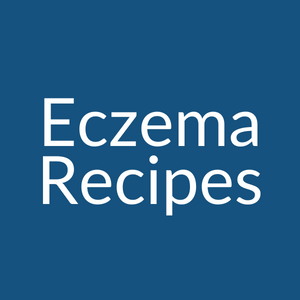Eczema & Diet

 One aspect of eczema management that has gained considerable attention in recent years is the role of diet. Many individuals with eczema and their families are interested in understanding how certain foods can influence the condition. In this comprehensive guide, we will explore the importance of diet in eczema management, identify beneficial and harmful foods, and provide practical dietary recommendations to help individuals better manage their eczema symptoms.
One aspect of eczema management that has gained considerable attention in recent years is the role of diet. Many individuals with eczema and their families are interested in understanding how certain foods can influence the condition. In this comprehensive guide, we will explore the importance of diet in eczema management, identify beneficial and harmful foods, and provide practical dietary recommendations to help individuals better manage their eczema symptoms.
The Complex Relationship Between Diet and Eczema
The relationship between diet and eczema is complex and not fully understood. Eczema is believed to be a result of genetic, immune system, and environmental factors. In some cases, certain foods may act as triggers, exacerbating eczema symptoms. However, not all individuals with eczema experience food-related flare-ups, and the specific foods that trigger symptoms can vary from person to person. Understanding the impact of diet on eczema involves considering several key factors:
- Food Allergies: Some individuals with eczema may have specific food allergies, such as to dairy, eggs, nuts, or shellfish, which can trigger eczema flares. These allergies can be identified through allergy testing.
- Eczema Phenotypes: Different subtypes of eczema may have distinct dietary influences. For instance, individuals with dyshidrotic eczema, characterized by blisters on the hands and feet, may react differently to certain foods than those with atopic dermatitis.
- Dietary Triggers: While there are no universally agreed-upon dietary triggers for eczema, some common culprits include dairy, eggs, soy, wheat, nuts, and fish. These foods can lead to allergic reactions in susceptible individuals.
- Sensitivities and Intolerances: Food sensitivities and intolerances can also play a role. These reactions, while distinct from allergies, may result in eczema-like skin symptoms in some people.
- The Gut-Skin Connection: Emerging research suggests that the gut microbiome may influence eczema. An imbalance in gut bacteria, known as dysbiosis, could potentially affect the immune system and skin health.
- Nutrient Deficiencies: Nutritional deficiencies, especially those related to vitamins and minerals like vitamin D, zinc, and omega-3 fatty acids, have been associated with eczema severity. Therefore, maintaining a well-balanced diet is crucial.
Beneficial Foods for Eczema
While it is important to understand potential dietary triggers for eczema, it is equally essential to recognize foods that may have a positive impact on the condition. Incorporating the following foods into your diet may help improve eczema symptoms:
- Foods Rich in Omega-3 Fatty Acids: Omega-3 fatty acids, found in fatty fish like salmon, mackerel, and sardines, have anti-inflammatory properties. These healthy fats may help reduce skin inflammation and itching.
- Probiotic-Rich Foods: Probiotics, found in yogurt, kefir, kimchi, and other fermented foods, can promote a healthy gut microbiome. A balanced gut may contribute to overall immune health and skin well-being.
- Foods High in Antioxidants: Antioxidants, present in fruits and vegetables like berries, spinach, and kale, can help protect the skin from oxidative stress and inflammation.
- Zinc-Containing Foods: Zinc is essential for skin health and wound healing. Foods like lean meats, nuts, and whole grains are good dietary sources of zinc.
- Foods High in Vitamin D: Vitamin D plays a crucial role in immune regulation and skin health. Fatty fish, fortified dairy products, and sunlight exposure can increase vitamin D levels.
- Hydration: Drinking an adequate amount of water is essential for maintaining skin hydration. Dehydrated skin is more prone to irritation and dryness.
Harmful Foods for Eczema
In contrast to beneficial foods, there are certain dietary factors that individuals with eczema may want to minimize or avoid:
- Common Food Allergens: If you have identified specific food allergies, it is essential to eliminate these allergens from your diet. Common allergens include dairy, eggs, peanuts, tree nuts, soy, wheat, fish, and shellfish.
- Highly Processed Foods: Processed foods often contain artificial additives, preservatives, and high levels of salt and sugar. These can exacerbate inflammation and may trigger eczema symptoms in some individuals.
- Sugar and Refined Carbohydrates: High sugar intake and the consumption of refined carbohydrates can lead to fluctuations in blood sugar levels and promote inflammation.
- Fatty, Fried Foods: Fatty and fried foods, while not a direct cause of eczema, can contribute to an unhealthy diet and potentially worsen symptoms.
- Excessive Dairy: While not all individuals with eczema are sensitive to dairy, it is a common trigger for some. If you suspect dairy is a problem, consider dairy alternatives.
Practical Dietary Recommendations for Eczema Management
Here are some practical dietary recommendations for individuals with eczema:
- Identify Your Triggers: If you suspect certain foods are exacerbating your eczema, consider an elimination diet. This involves removing potential trigger foods from your diet for a specific period and then gradually reintroducing them to identify culprits.
- Consult a Healthcare Provider: If you have concerns about dietary triggers or food allergies, consult a healthcare provider, allergist, or dermatologist. Allergy testing can help identify specific food allergens.
- Maintain a Balanced Diet: A well-balanced diet that includes a variety of fruits, vegetables, whole grains, lean proteins, and healthy fats is generally recommended for overall health and may positively influence eczema.
- Stay Hydrated: Proper hydration is essential for skin health. Drinking sufficient water can help maintain skin barrier function.
- Omega-3 Supplements: If you are not getting enough omega-3 fatty acids through your diet, your healthcare provider may recommend supplements.
- Probiotic Supplements: Probiotic supplements may be considered if you have a history of gut issues or an imbalance in gut bacteria.
Personalized Dietary Approaches
Eczema is a highly individualized condition, and what works for one person may not work for another. When considering dietary changes, it is essential to approach them in a personalized manner. Working with healthcare professionals, including allergists, dermatologists, and dietitians, can help you identify specific triggers, allergies, and dietary interventions that are most appropriate for your situation. By taking a personalized approach to your diet, you can better manage your eczema and improve your overall quality of life.
Helpful Links:
National Eczema Association (NEA):https://nationaleczema.org/
American Academy of Dermatology (AAD):https://www.aad.org/
Mayo Clinic:https://www.mayoclinic.org/
WebMD: https://www.webmd.com/
eczema.org: https://eczema.org/
Keywords:
Eczema, Atopic Dermatitis, Eczema Treatment, Eczema Symptoms, Eczema Causes, Eczema Management, Eczema Relief, Eczema Cream, Eczema Home Remedies, Eczema Skin Care, Eczema Rash, Eczema Diet, Eczema Causes and Triggers, Eczema Natural Remedies, Eczema Medications, Eczema in Children, Eczema in Adults, Eczema Prevention, Eczema Flare-Ups, Eczema and Allergies, Eczema Itch Relief, Eczema and Stress, Eczema Support Groups, Eczema Cream Reviews, Best Moisturizers for Eczema, Eczema-friendly Clothing, Eczema and Climate, Eczema Care Tips, Eczema and Skin Hydration, types of eczema, type of eczema, dyshidrotic eczema, eczema symptoms, symptoms of eczema, nummular eczema, eczema treatments, eczema causes, eczema causes, what eczema is, Eczema, Atopic Dermatitis, Eczema Treatment, Eczema Symptoms, Eczema Causes, Eczema Management, Eczema Relief, Eczema Cream, Eczema Home Remedies, Eczema Skin Care, Eczema Rash, Eczema Diet, Eczema Causes and Triggers, Eczema Natural Remedies, Eczema Medications, Eczema in Children, Eczema in Adults, Eczema Prevention, Eczema Flare-Ups, Eczema and Allergies, Eczema Itch Relief, Eczema and Stress, Eczema Support Groups, Eczema Cream Reviews, Best Moisturizers for Eczema, Eczema-friendly Clothing, Eczema and Climate, Eczema Care Tips, Eczema and Skin Hydration
